
IPPF works to ensure that every woman and girl has the human right to choose to be pregnant or not and we will continue to supply and support safe and legal abortion services and care. We are committed to reducing the number of deaths of women and girls who are forced to turn to unsafe abortion methods. Make Abortion Safe. Make Abortion Legal. For all Women and Girls. Everywhere.
Articles by Abortion Care
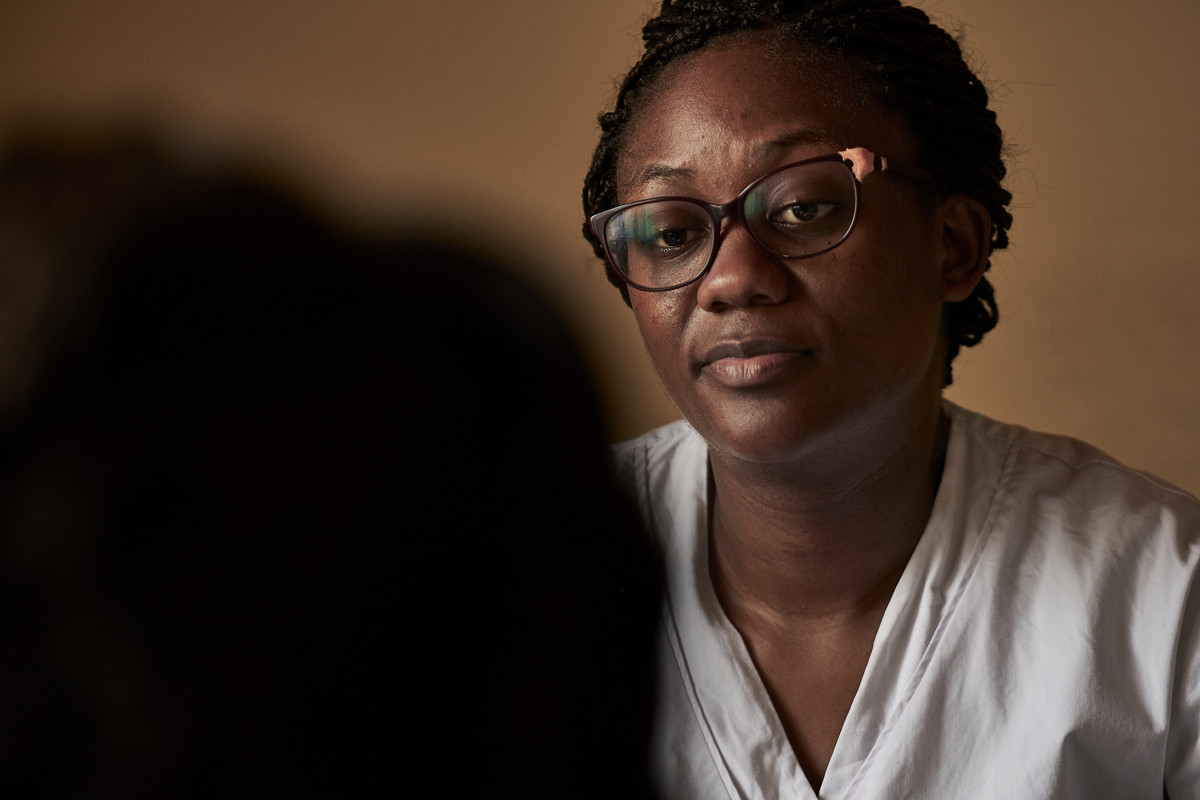
IPPF joint statement at HRC42
Co-sponsored by Catholics for Choice, Center for Health and Gender Equality (CHANGE), Center for Reproductive Rights, Centro de Promoción y Defensa de los Derechos Sexuales y Reproductivos (PROMSEX), CHOICE for Youth and Sexuality, Danish Family Planning Association (Sex og Samfund), DSW (Deutsche Stiftung Weltbevoelkerung), Fundación Mexicana para la Planeación Familiar, A.C. (Mexfam), ILGA World, International Women's Health Coalition (IWHC), International Campaign for Women's Right to Safe Abortion, International Planned Parenthood Federation (IPPF), IPPF/Africa Regional Office, Irish Family Planning Association, Le Planning Familiar, Mujer y Salud Uruguay (MYSU), Planned Parenthood Federation of American (PPFA), Plan International, Profamilia Colombia, Rutgers, Sex og Politikk, Sexual Rights Initiative (SRI), Swedish Association for Sexuality Education (RFSU), and Women's Link Worldwide. This year we celebrate the 25th anniversary of International Conference on Population and Development (ICPD) and its Program of Action (PoA), a landmark moment for human rights, where 179 countries recognized that reproductive rights are part of existing human rights, and marked a shift to a human rights-based approach to population and development policies, with a focus on ensuring health, equality, empowerment and rights for all while upholding the principles of non- violence, and non-discrimination. Critically, it recognized the centrality of the indivisible, interdependent, and interrelated nature of human rights to issues of population and sustainable development, in line with the UDHR and the Vienna Declaration. Since then, Member States have repeatedly reaffirmed their commitments to the ICPD PoA, including in the 2030 Agenda, and Treaty Monitoring Bodies (TMBs) have significantly built on the rights delineated in the PoA and furthered human rights standards pertaining to sexual and reproductive rights. However, while some progress in implementation has taken place, too much remains to be done. Therefore, we welcome the Nairobi Summit on ICPD+25 which will once again bring together Member States and different stakeholders to mobilize the political will and financial commitments urgently needed to implement the ICPD Agenda, putting the voices and rights of women and girls at the center of conversations, and meet the 3 zeros: zero gender-based violence, zero unmet need for family planning, and zero preventable maternal deaths. As we approach September 28th, the International Safe Abortion Day, whose theme for 2019 is “abortion is healthcare,” we cannot ignore that legal and policy barriers to safe abortion make unsafe abortion one of the global leading causes of maternal mortality*, which in most cases are preventable if all people, especially women and adolescents, have access to safe, legal abortion. Let’s not deny the evidence: safe abortion saves lives. If Member States are serious about ending maternal mortality, the legal, policy, social, cultural and economic barriers to access safe abortion must be addressed. We urge all Member States to make meaningful, measurable national commitments in Nairobi to increase access to safe and legal abortion, in accordance with their legal obligations under international human rights law, in an effort to reach zero preventable maternal deaths, and to commit to report on progress in its implementation. (*Lisa B Haddad, MD, MA, and Nawal M Nour, MD, MPH, Unsafe Abortion: Unnecessary Maternal Mortality, Rev Obstet Gynecol. 2009 Spring; 2(2): 122–126, https://www.ncbi.nlm.nih.gov/pmc/articles/PMC2709326/; Su Mon Latt, Allison Milner & Anne Kavanagh, Abortion laws reform may reduce maternal mortality: an ecological study in 162 countries, BMC Women's Health 2019 19(1) https://bmcwomenshealth.biomedcentral.com/articles/10.1186/s12905-018-0705-y. See also Medecins Sans Frontiers, 2019 Unsafe abortion: a forgotten emergency, https://www.msf.org/unsafe-abortion-forgotten-emergency-womens-health; Susheela Singh, Lisa Remez, Gilda Sedgh, Lorraine Kwok and Tsuyoshi Onda, Guttmacher Institute, Abortion Worldwide 2017: Uneven Progress and Unequal Access (2018) https://www.guttmacher.org/report/abortion-worldwide-2017)
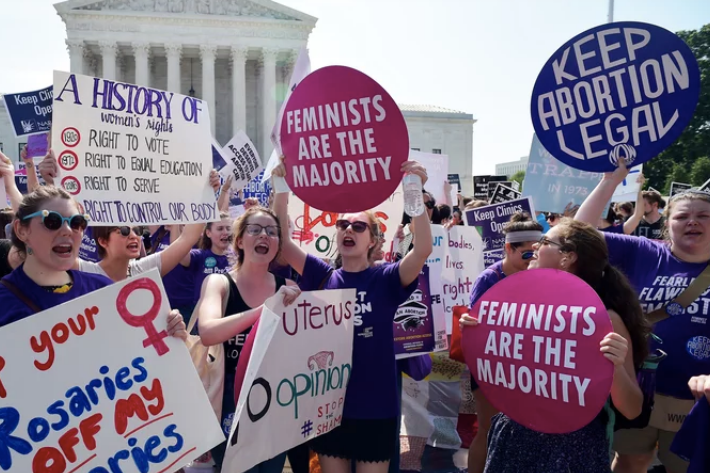
Sky News drops term “heartbeat bill” after healthcare coalition call
Sky News says it will stop using the term “heartbeat bill” to describe attempts in the US to introduce six-week abortion bans, after conceding the phrase is biased. A coalition of five leading reproductive healthcare organizations – the Federation of Gynecologists and Obstetricians (FIGO), International Planned Parenthood Federation (IPPF), Marie Stopes International (MSI), Planned Parenthood Federation of America (PPFA) and the Royal College of Obstericians and Gynaecologists (RCOG) wrote to Sky News about its use of the phrase. It pointed out that both RCOG and the American College of Obstericians and Gynecologists had stated clearly the phrase was medically inaccurate, and that the language was partial, coined by opponents of access to safe and legal abortion to frame the debate on their own terms. The alliance also pointed out that other media, such as The Guardian, had already announced it would drop the description. Sky News consulted its US team before telling the coalition that it would stop using the term. In his reply Sky’s Head of Home News, Peter Lowe, said: “We agree that the term “heartbeat bill” is not an impartial expression, but designed to support a particular point of view…our plan would be to adopt “Six week abortion ban”, or similar phrase.” IPPF Director-General Dr Alvaro Bermejo said: “We’re very grateful that a news organization with the reach and reputation of Sky News has thought so hard about its use of language and decided to stop using this medically inaccurate and biased phrase. Words matter, and all journalists need to pause, think and avoid simply parroting terms designed to skew opinion, especially when they are – as in this case – medically wrong as well as partial. It’s up to major news providers, who make much of the trust placed in them by audiences and their commitment to impartiality, to see through these attempts by opponents of access to safe and legal abortion to play them.” Sky News’ move follows a decision by BBC News not to rule out using the phrase, because it was already “in common usage.” Dr Bermejo said: “Sky News’ decision shows that news does not have to simply follow where it is led. We would ask BBC News to think again about its reluctance to rule out using partial language.” The group also contacted ITV News and received an assurance from Rachel Corp, its Acting Editor, that if it used “heartbeat bill” at all, it would make clear it was a biased phrase. She said: “We would always aim to make clear the phrase is being used by those campaigning against abortion and would attribute it to them.” Channel 4 News, which does not appear to have used the term, said it had told all its journalists to be aware of the issues it raised. Ben de Pear, Editor of Channel 4 News said: “I note the point you have raised over the use of this term…We have notified editorial staff of the nature of this debate and the particular issues raised by this legislation.” The coalition thanked Sky News, ITV News and Channel 4 News for thinking carefully about the impact of their language. It also confirmed it would contact the BBC’s Director General, Lord Hall, to ask for a meeting about the issue, as BBC News appeared to be out of step with other broadcasters. NOTES: Sky News is available in 127 countries and 102 million homes, according to Sky News International. It is the current RTS News Channel of the Year.
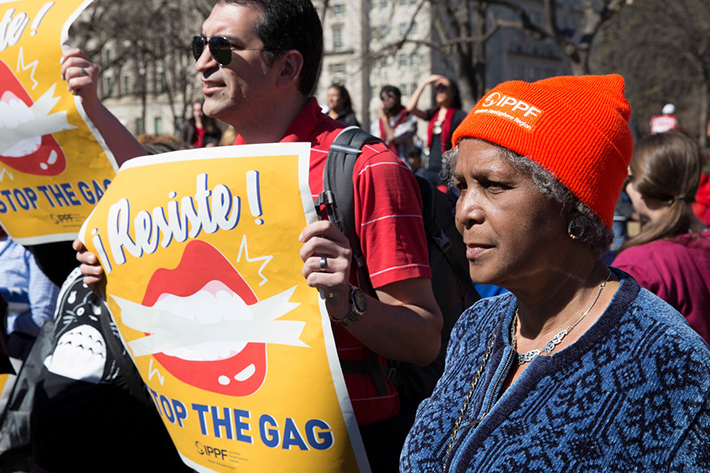
IPPF responds to Stanford University report on Mexico City Policy and induced abortion in Africa
A new report from Stanford University shows that there is a link between the US administration's Mexico City Policy and abortion rates in sub-Saharan Africa. These findings are hugely significant. We have long known this connection when essential health services felt the impact of previous forms of the policy. This now lends proof to what NGOs working in sexual and reproductive health have always known, that by cutting funding to organizations that provide integrated care, it has a knock-on, detrimental impact on access to contraception. The report shows clearly the same trend. The policy denies women access to essential care, silences civil society organizations and gets in between women and their healthcare providers. Cutting access to contraception always leads to unwanted pregnancy and to women being forced to continue with pregnancies in difficult circumstances. This does undoubtedly lead to increased maternal mortality when safe and legal abortion is restricted. We hope these findings encourage the US administration to reconsider the Mexico City Policy in light of this compelling evidence. It is clear that this policy needs to be reversed to expand access to essential healthcare for women and girls globally. For IPPF, this means that more needs to done to ensure that sexual and reproductive healthcare is available to reach every woman and girl whenever and wherever they need it. We remain committed to providing contraceptive services and abortion care as essential aspects of our work. Through this, coupled with community education and advocacy at all levels, we will continue to work hard to reach who we can. This is especially important in light of the current backlash against sexual and reproductive health and rights globally.
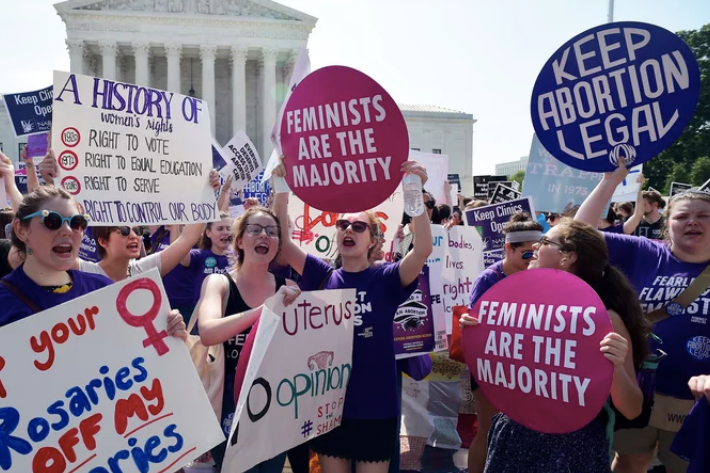
BBC refuses to stop using medically inaccurate and biased language on abortion
The BBC has said it won’t stop labelling attempts to ban abortion after six weeks as “heartbeat bills” – despite conceding the phrase is biased and medically inaccurate. A coalition of four leading reproductive healthcare organisations – the Federation of Gynecologists and Obstetricians (FIGO), International Planned Parenthood Federation (IPPF), Marie Stopes International (MSI) and Planned Parenthood Federation of America (PPFA) wrote to the BBC, demanding it stop using the phrase in its coverage of attempts in some US states to introduce six week abortion bans. In its letter, the coalition pointed out: This description is biased, coined by opponents of safe and legal abortion in an attempt to frame the debate in their own emotional and empathetic terms. The American College of Obstetricians and Gynecologists (ACOG) has stated clearly that the phrase is medically inaccurate. Other news organisations, such as The Guardian, have already announced they would stop using the phrase and replace it with the factual “six-week abortion ban” Adding the words “so-called” or placing the phrase in parenthesises does not address the bias. In her reply, Fran Unsworth, BBC Director of News and Current Affairs said: “I quite understand the point you make about the use of the phrase “heartbeat bill” and we would not aim to adopt it as our own description of the legislation.” But she went on to say the term was “now in common usage” and the BBC would not stop using it. Dr Alvaro Bermejo, Director General, International Planned Parenthood Federation, said: “The BBC can’t concede “heartbeat bill” is a biased and medically inaccurate description and then say it’s going to use it anyway. Saying it is “in common usage” is no excuse, especially when the BBC – which boasted only last week that it has a global weekly audience of 426 million people – shares the blame for spreading it. Language around legal abortion has been weaponised by those who want to deny women access to it and journalists – especially those who work for a news organisation which claims to be impartial and trusted – must wake-up and see they are being played. This phrase was chosen very carefully by people who want to end access to legal abortion and who are exploiting the mainstream media to insert biased language into the common vernacular. It’s designed to hide the devastating impact on women of their plans and skew coverage. The right thing to do is to stop using it. We call on the BBC to think again.” Simon Cooke, Chief Executive Officer, Marie Stopes International, commented: “We are frustrated and disappointed by the BBC’s decision to continue to amplify a phrase which is not only medically inaccurate and overtly emotive, but which can put women’s health and lives at very real risk by increasing stigma. To fall back on ‘common usage’ as a defence legitimises and normalises anti-abortion rhetoric and further extends the chilling effect of restrictive anti-choice policies and views, especially when used by a globally respected and trusted media organisation such as the BBC. It’s sad to see antiabortionists so easily able to manipulate the mainstream media for their own ends.” Dr Leana Wen, President and CEO, Planned Parenthood Federation of America said: “As a physician, I know just how critical it is for people to have the most accurate information about their health care. At this moment when our rights and freedoms are under unprecedented assault, now more than ever, we must stand up to dangerous misinformation. As scientists and public health leaders, we have a responsibility to stand up and reject misleading rhetoric and we call on the BBC to adopt medically accurate and unbiased language.” For more information contact Tia Jeewa at IPPF on 0207 939 8227, or email [email protected]
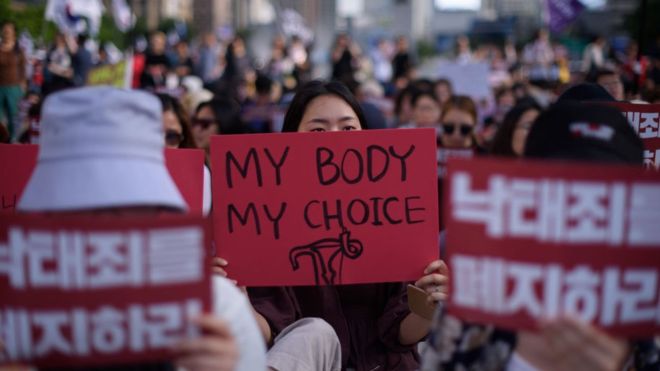
IPPF welcomes South Korea's historic decision to overturn abortion ban
The International Planned Parenthood Federation (IPPF) has welcomed the historic decision made by the South Korean Constitutional Court today overturning a decades-long ban on access to abortion. The court has ordered that the law must be revised before the end of 2020. The current ban – in place since 1953 – criminalises abortion except in cases of rape, incest or risk to health. Women who have abortions and doctors who perform them can be jailed. Dr Alvaro Bermejo, Director General of IPPF said; “This is wonderful news. No women or girl should be coerced through a full pregnancy against her will and no medical professional criminalised for giving care. Extreme laws only fuel unsafe abortions which kill and injury women. I congratulate all the activists, particularly the Korean Women’s Association United, to which the Korea Population Health and Welfare Association (KOPHWA) – IPPF’s Member Association in South Korea – is related, for their united movement and successful advocacy for this change. We are keen to support Korea’s process to put this decision into practice as soon as possible. IPPF has experience of working in countries where similar historic change is taking place, such as Ireland. As a global federation of Member Associations, we can offer support experience and knowledge.” Ms Kyung Ae Cho, Secretary General of KOPHWA said; "It is a moment of momentum for women's health and reproductive health rights. We need systematic efforts to provide Integrated sexual health and reproductive health services for women's health in the future."
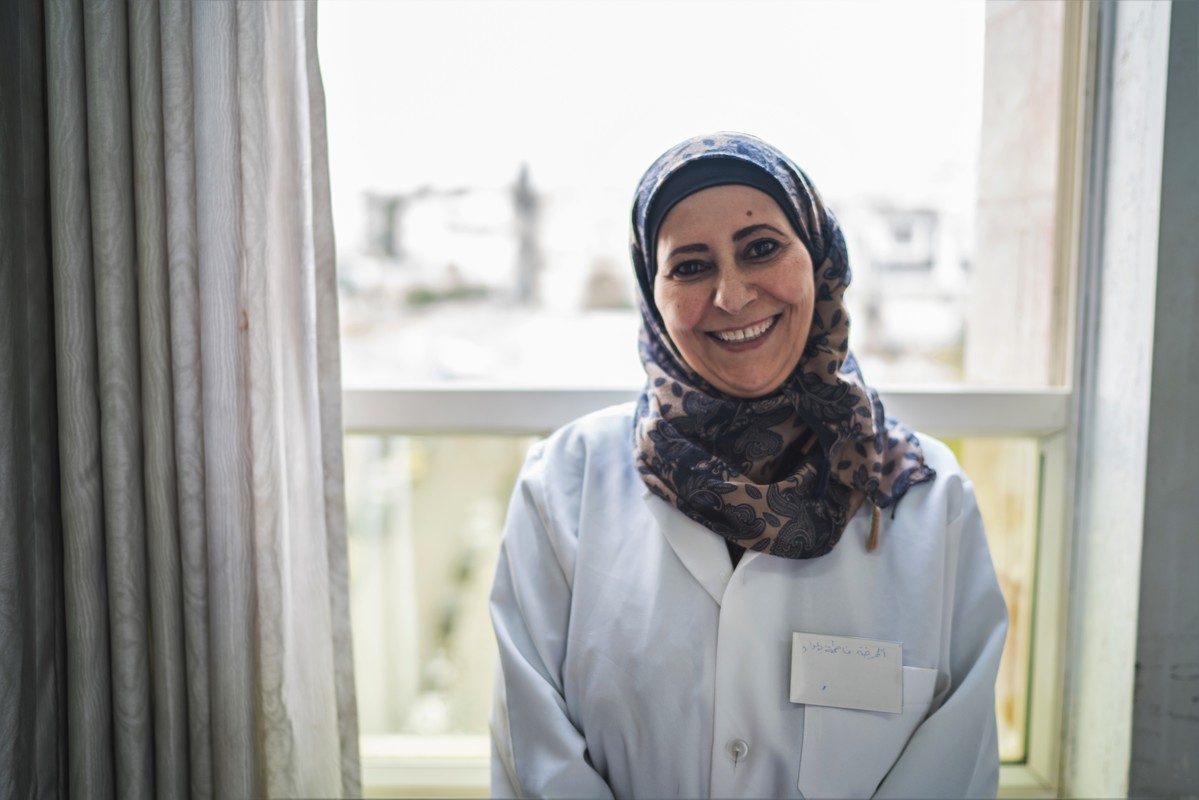
"Women in our communities use many unsafe methods to try to end pregnancies"
Women and girls in Palestine face a number of difficulties and challenges. The ongoing conflict and lack of sitting government as well as high unemployment, has led to poverty and inequality, while an increasingly conservative society and traditionally patriarchal culture has led to increased gender-inequality and lack of access to sexual and reproductive healthcare. The current abortion law unfairly pushes women to risk their lives and health to attempt to end their unwanted pregnancies in unsafe ways. In this context, the Palestinian Family Planning and Protection Agency (PFPPA) has been working since 1964, to provide sexual and reproductive healthcare and advocate for women’s rights. Having received two grants from Safe Abortion Action Fund (SAAF) since 2014, they have been working on the lack of access to safe abortion in the country with a focus on increasing their provision of abortion-related services and advocating at community and national level for changes to the abortion law. My name is Fatima, I am a midwife and have worked with PFPPA for 18 years in the Halhul clinic in Palestine. PFPPA has had a great impact on me personally as well as the community as a whole. I experienced violence in my marriage but when I joined the organization I learned the meaning of violence and I realized that I didn’t have to put up with it and could make decisions for myself. This was a turning point in my life. My life changed 180 degrees, thank God, and my husband stopped being violent. Society & acceptance Since I have worked here, I have seen changes in society’s acceptance of sexual and reproductive health issues and I feel that more people are supporting us. They can be women, religious personalities or young volunteers. One of the proudest moments of my work has been working with a young man who was training to be a peer educator, he was violent, especially with his sister. From the very start of the training, he was against the issues that we were presenting, however, he started to understand our issues. I also met his mother and she thanked me for the change that happened in his life. She came to say that he is now helping in the house - washing dishes and doing other tasks that he would have thought were just for women before. The challenges that we face are a misunderstanding of religion, negative traditions and customs, as well as the political situation in Palestine with the occupation, the walls, the checkpoints as well as the economic situation. We work on issues that will take many years to witness any change due to the negative traditions and customs. Harm reduction & abortion care We have recently started implementing a harm reduction approach to abortion care. I remember one woman who was 44 years old and divorced. She came to the clinic and was seven weeks pregnant. Her face was pale and tired...I felt that all the problems were on her shoulders. She was looking for a saviour. We supported her with harm reduction information and afterwards provided information on post-abortion contraception. After one or two months she sent a message thanking me, saying that we had saved her life, I was really happy about that. There are also cases of women that come here, maybe they took pills or they did something that made them bleed. They don’t tell you what they did but I can detect if I think an abortion happened. If it is an incomplete abortion, we explain how to take the treatment and we follow up with support. Unsafe methods Women in our communities use many unsafe methods to try to end pregnancies. They drink special teas or chlorine. They jump off things or ask their children to jump on them. They sometimes put suppositories made from Arabic medicinal herbs into the cervix. Although it is common, deaths are not registered as linked to unsafe abortion but are probably registered as maternal deaths. When the society says that abortion is haram (forbidden), they don’t take into consideration the issues and these women in need. Imagine if we had safe abortion services at the hospitals, we would not see these issues at all. There are women who would choose abortion for reasons like their age, their health, social issues and psychological issues. There are women themselves who say “I will die if I complete this pregnancy”. I am passionate about the work that I do. I advocate for these issues everywhere I go, on the bus, during weddings and with friends and family, wherever I go. That is why the Safe Abortion Action Fund (SAAF) funded project is so important. I have learned a lot about advocacy and campaigning, how we manage legal advocacy and how to work with decision-makers. We have run events to mark International Safe Abortion Day with groups of women gathered here in the centre and with decision-makers and volunteers. Read more stories from SAAF in Palestine
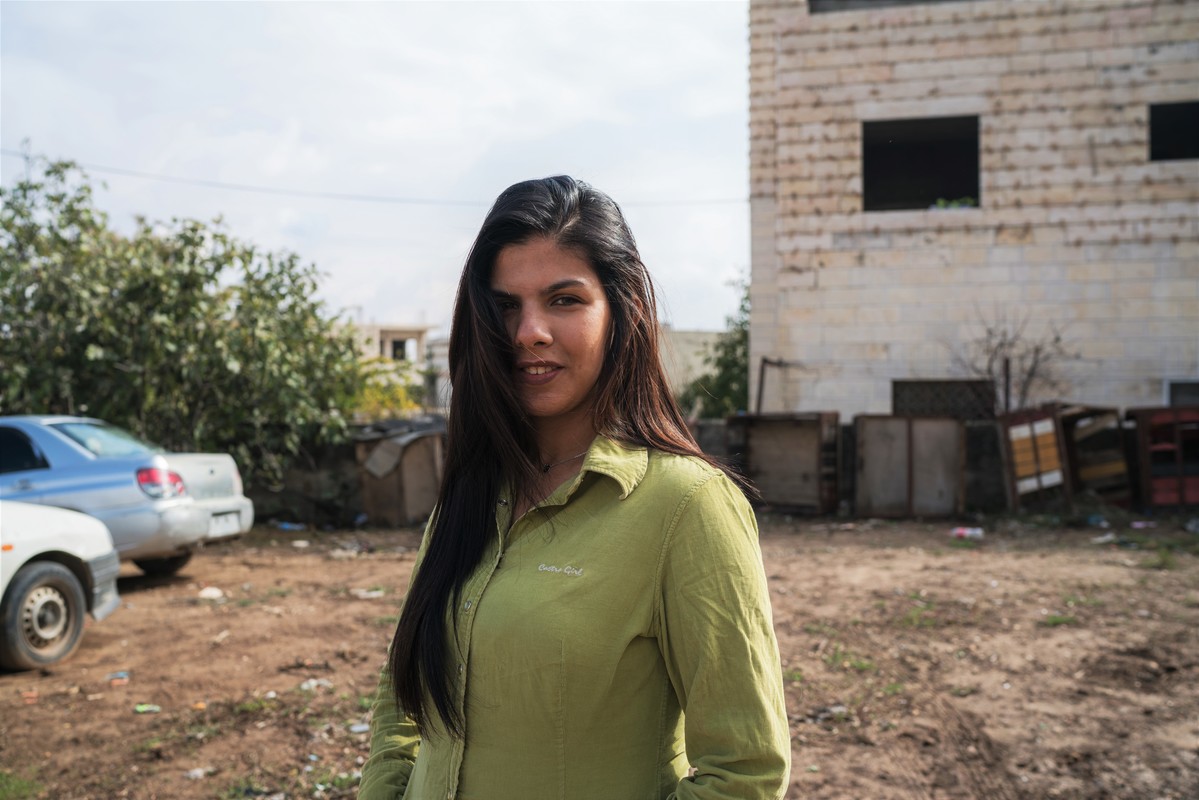
"The students don’t normally ask about abortion as it is such a taboo"
Women and girls in Palestine face a number of difficulties and challenges. The ongoing conflict and lack of sitting government as well as high unemployment, has led to poverty and inequality, while an increasingly conservative society and traditionally patriarchal culture has led to increased gender-inequality and lack of access to sexual and reproductive healthcare. The current abortion law unfairly pushes women to risk their lives and health to attempt to end their unwanted pregnancies in unsafe ways. In this context, the Palestinian Family Planning and Protection Agency (PFPPA) has been working since 1964, to provide sexual and reproductive healthcare and advocate for women’s rights. Having received two grants from Safe Abortion Action Fund (SAAF) since 2014, they have been working on the lack of access to safe abortion in the country with a focus on increasing their provision of abortion-related services and advocating at community and national level for changes to the abortion law. My name is Amani and I am 24 years old. I live with my parents in Bethlehem in the West Bank and I work as a midwife in a family hospital in Jerusalem as well as a peer education volunteer with the Palestinian Family Planning and Protection Agency. Working in schools Part of my role as a volunteer involves going to schools and doing presentations about early-marriage, family planning and gender-based violence. Even though sex outside of marriage is taboo, it does happen. However, it is very hard for unmarried people to access contraception as the culture is so restrictive, especially here in Hebron. When they need contraception, the man usually goes by himself or they look online. When we go to schools and talk to students about the subject of sexual health, the students want to know more because at home it is a taboo to talk about such things. We get many questions about issues such as masturbation or what causes pregnancy. They just know that it happens when men and women are together, they do not know how it happens. So people may ask a question like: ‘if I touch somebody, if I stand near someone or kiss them will I get pregnant?’ Abortion is still a taboo The students don’t normally ask about abortion as it is such a taboo. I do know that unsafe abortion happens though, for example my grandmother tried to end her pregnancy once. She was forty-five years old and had six children already. She did not know any way of not getting pregnant or safely ending the pregnancy. She told me that she drank liquids and jumped from the stairs, taking a great risk. She really didn’t want to be pregnant again and tried hard to end it but it did not work. I am very proud that as a peer educator I have expanded my knowledge on many issues, including how to provide harm reduction information to women so that they can reduce risks of unsafe abortion and not do what my grandmother did in case they don’t want to be pregnant. Once I met with a woman who already had six children, she was tired of having children but her husband wanted to have more so we visited them at home and through conversation, the husband understood the need, so she was able to access an IUD. Here we work a lot with women, we change them, we speak with them, they change their opinions, they become decision-makers and they leave the clinic as different people. Read more stories from SAAF in Palestine
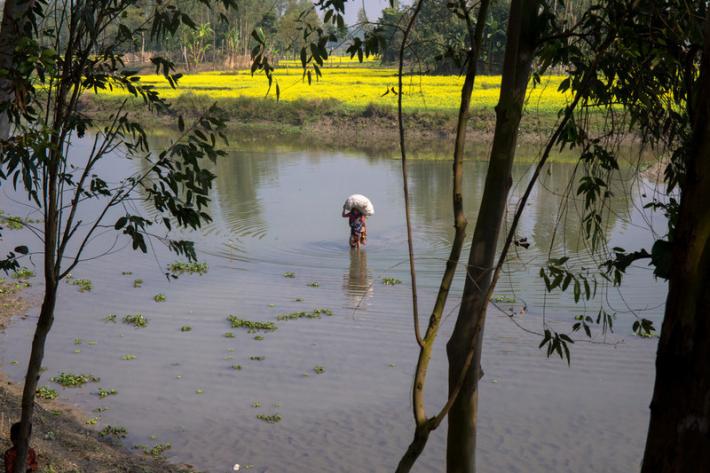
Improving the quality and availability of post-abortion care in a humanitarian crisis
The world is facing stronger and longer natural disasters, protracted complex emergencies, conflicts and epidemics. These humanitarian crises can expose weakness in health systems, with particularly serious consequences for women and girls in need of reproductive health care. To improve the quality and availability of post‑abortion care during a flood, the University of Leicester and International Planned Parenthood Federation South Asia Region (IPPF-SAR), in collaboration with the Government of Bangladesh, developed and measured the impact of an integrated intervention package, called RHCC. First tested in a flood-prone area of Bangladesh, this novel approach includes: i) Pre-positioning medicines and supplies, using the UNFPA’s Inter-Agency Reproductive Health Kit 8; ii) Capacity building of service providers; and iii) Community awareness raising. Supported by IPPF's Innovation Programme, the project aligns with IPPF’s commitment to ensuring that crisis-affected populations receive timely, quality, life-saving, gender-responsive and inclusive sexual and reproductive health services.
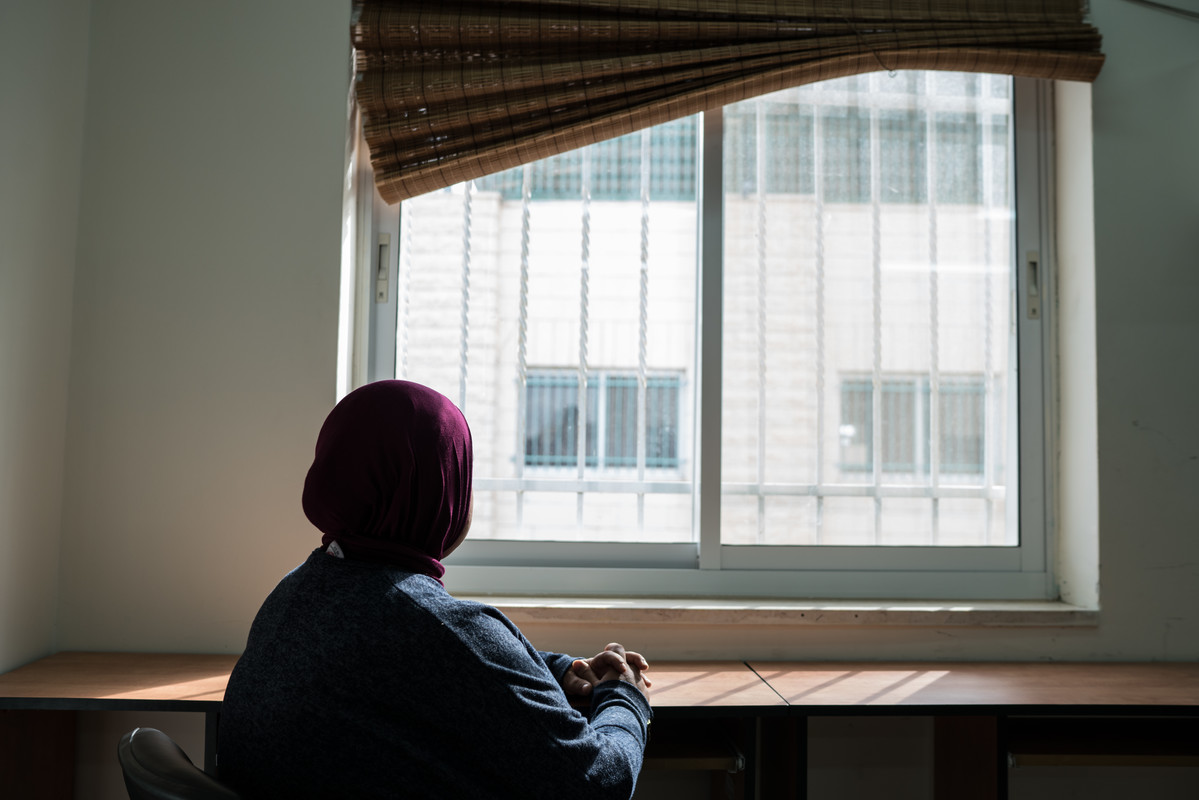
"From my experience the situation in relation to abortion in Palestine is very hard"
Women and girls in Palestine face a number of difficulties and challenges. The ongoing conflict and lack of sitting government as well as high unemployment, has led to poverty and inequality, while an increasingly conservative society and traditionally patriarchal culture has led to increased gender-inequality and lack of access to sexual and reproductive healthcare. The current abortion law unfairly pushes women to risk their lives and health to attempt to end their unwanted pregnancies in unsafe ways. In this context, the Palestinian Family Planning and Protection Agency (PFPPA) has been working since 1964, to provide sexual and reproductive healthcare and advocate for women’s rights. Having received two grants from Safe Abortion Action Fund (SAAF) since 2014, they have been working on the lack of access to safe abortion in the country with a focus on increasing their provision of abortion-related services and advocating at community and national level for changes to the abortion law. My name is Khawla*, I am 42 years old and I am a midwife and university lecturer. I have been married for 10 years and have three children, two boys and a girl. I have multiple health issues and a number of hereditary conditions in my family. I first became involved with PFPPA through my work, having taken many trainings with them about issues such as early marriage, gender-based violence, sexual health and safe abortion. Then last year I accidentally became pregnant myself. My youngest child was just two years old, I had a new job at the time and was suffering with a number of health issues that would make another pregnancy dangerous for me. Unintended pregnancy When I read that the pregnancy test was positive, it was a very hard time. I started crying – I felt like the world was very black – it was the end of my life. I would kill myself, if I didn’t end this pregnancy. So I came to PFPPA and they treated me as a client. I met with the social worker, midwife and doctor and, since the pregnancy was risk to my life and I was very weak and bleeding when I reached them they were able to prescribe the tablets. These pills are highly regulated and restricted here and not all pharmacists stock them but I was able to access them with the prescription and they worked. PFPPA provided follow up afterwards helping me to find an effective long-acting family planning method. Even though I knew about the different methods, they discussed them all with me to ensure that they would be appropriate for my health. Even though the law allows abortion in cases of risks to health of the woman, you need to get permission from the religious leaders and they are very hard to convince. I took my case to them and, despite my health issues, they refused despite it being very early in the pregnancy, before the ensoulment and is allowed according to Islam. The public hospital will not perform it unless they receive the permission from the religious leaders and they don’t give it despite what the religious rules say. Stigma & access From my experience the situation in relation to abortion in Palestine is very hard. There are many women who get pregnant who did not plan it and it’s not the time for the pregnancy. The door is closed to them from the public health system. I have started to campaign on this issue now, I talk to the students in my course about how we can solve this problem. I think the stigma is very difficult. I never thought I would be in this situation, I talked a lot about it before but when you are in the situation, it is totally different. I really appreciated the help given from the PFPPA team, particularly the psychological support. When I felt bad, they helped me to see that I was doing the right thing and it was my right. Read more stories from SAAF in Palestine *Not her real name
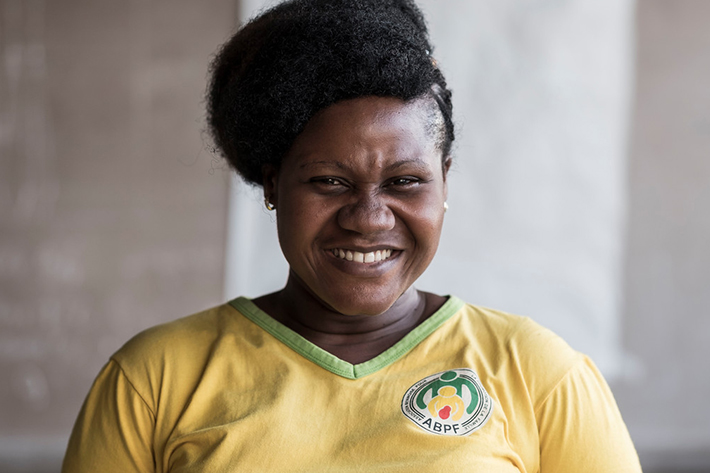
I Decide: A global campaign to break down barriers for safe abortion access
In September 2018, people all over the world joined together to demand safe abortion access to all after we launched our international movement: I Decide What Happens To My Body. It has been truly phenomenal. From handing in petitions to governments, to activists taking to the streets, WhatsApp and Facebook to pursue rights for themselves and others, dozens of IPPF Member Associations (MAs), activists and volunteers have made incredible steps forward – sometimes in challenging circumstances. Changing hearts and minds In Malaysia, activists created a range of informative but fun videos, busting myths around abortion in a campaign that is continuing to build momentum and will continue running for much of this year; Yemen featured on radio interviews and held flash mobs and talks; Morocco has been running a country-wide university competition that will become a yearly event, and; activists in eSwatini (formerly Swaziland) has been utilizing the power of social media to raise (normally unheard) voices, stimulating a country-wide debate on the provision of abortion that has got them invited to consult with the Ministry of Health. And those are just a few of the countries involved. It’s been an incredible journey for us all, and without doubt, each of us has been a crucial component of I Decide’s mission to spread the word on the ground that everyone must have the human right to make choices about their own bodies and futures. Like any movement, there are so many of those who joined in. We were even fortunate enough to get some expert insights from our MA in Sri Lanka, whose advocacy director, Sonali Gunasekera, spoke extensively about the challenges of changing hearts and minds over the issue of abortion in their country. We saw an incredible variety of information produced to normalise abortion for the everyday procedure that it is – from videos on how a safe abortion takes place, a podcast on youth abortion stigma and stories on those who campaigned successfully to lift abortion restrictions in Ireland. We also produced a landmark policy report, Her in charge, on the importance of medical abortion as a means of protecting and promoting women’s health. All this fascinating material and more is still available on the I Decide website. To make I Decide even more effective, over 300 people from all walks of life pledged their voices to have open, honest and frank conversations about abortion with the people around them. Journalists including Lucy Mangan and Hadley Freeman even got involved, lending their support to the campaign by writing about I Decide both online and in print. The work continues... So many people participated in I Decide. And every one of them have been a true champion for basic human rights. This month, the campaign came to an official end but the work does not end here. IPPF, our MAs and activists are committed to ensuring that everyone can have access to safe abortion. IPPF has been working around the world for nearly 70 years, and we’re here for as long as it takes. We hope you will also continue to be a part of breaking the stigma on abortion wide open, until absolutely everyone, everywhere can say: “I decide what happens to my body.”







